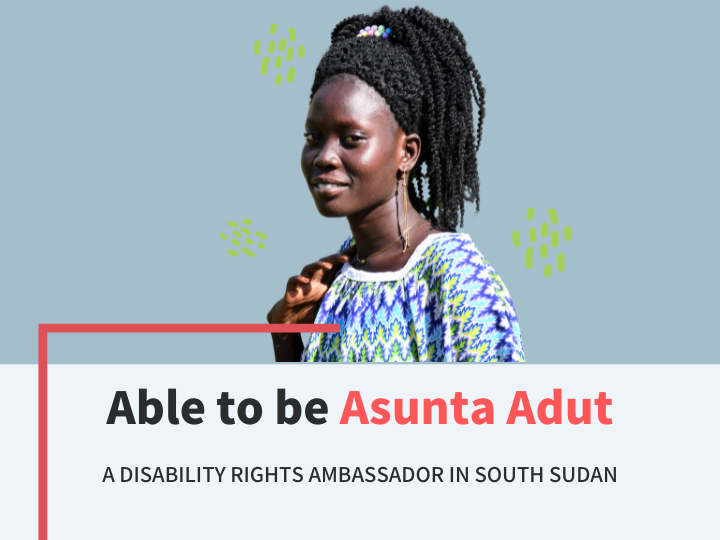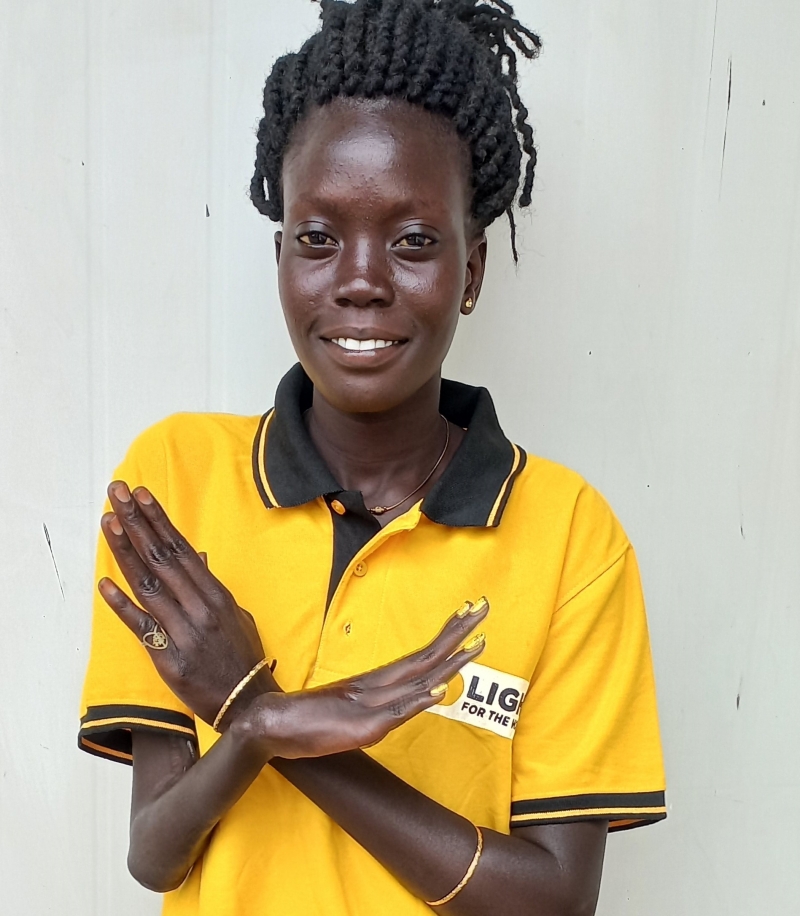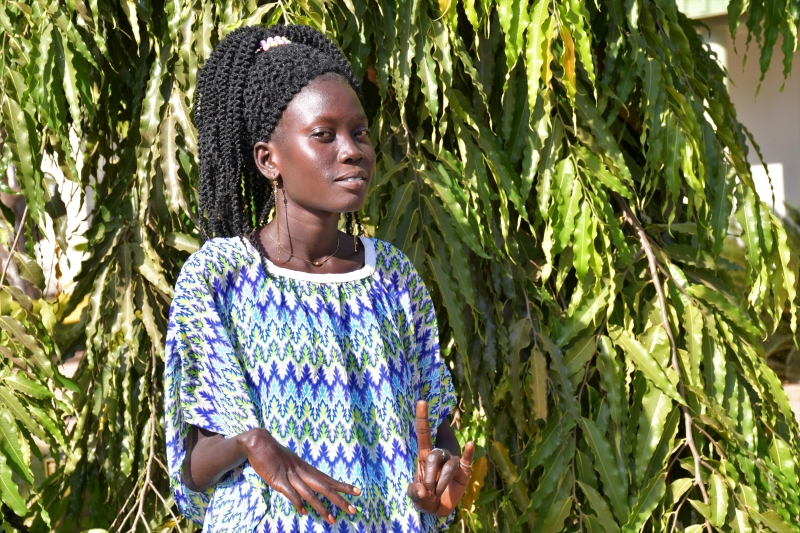I believe that a truly inclusive world, where everyone has equality, will benefit everyone.
Growing up I used to think: “Why didn’t I die? Why, why, why am I disabled, when others are OK?” I used to put heavy things in my hand or try hanging from a tree so it would straighten.
But my mum said: “That’s life, you’re not dead”.
My disability was caused by a snakebite when I was three years old. A snake bit my hand during the night. Mum told me it was so dark inside our hut they didn't know it was there.
At first, they thought I had an insect bite and gave me natural medicine. But then it started itching and swelling, and later the muscles and bones in my hand started to contract and stiffen. Snakebites can cause disabilities if people can’t easily get specialist care, like here in South Sudan.
I spent two years going to hospital with help from the United Nations. Then the doctors said I had to have an operation but there was no money. My dad has 10 wives and my mum is number six. Polygamy is not easy, and money is often difficult.
I want to get people who don't have a disability to fight for our rights too. That is my motivation. Asunta Adut
Getting an education
Women with disabilities are really suffering here in South Sudan.
For us, going to hospital or getting an education isn’t easy. We often aren't allowed to speak out or make decisions – even about our own children. And you don’t choose your own love – family members choose for you. A young woman with a disability could be given to an old man.
My life improved after my brother took me to a specialist primary school in Kenya. I realised that I’m not the only one, and that people with disabilities can do lots of things. After I finished high school back in South Sudan, I found a job as a Disability Inclusion Facilitator with an organisation called Light for the World.
That’s when I decided to become an ambassador for disability rights. I’m 19 now and working hard to support others who are worse off than me. I want to get people who don't have a disability to fight for our rights too. That is my motivation.
People with disabilities can do anything: the problem is all the barriers facing us. Asunta Adut
Work and future hopes
I’m a different person now. Yes, I have a disability, but I can do some things better than people who don’t.
The hardest part of my job is when people say, “people with disabilities can’t do anything”. Their attitude is like we’re dead but not yet buried.
I have so many certificates because I want to prove them wrong. People with disabilities can do anything: the problem is all the barriers facing us. Most places aren’t accessible for us, and governments and companies simply don’t know how to support us.
So today, I’m proud to be one of 32 Disability Inclusion Facilitators running training sessions and being role models for organisations across the country. When people see, for example, a blind person in our disability inclusion group leading a workshop using a laptop, that has a real impact.
Because that’s when they start asking how they can include people instead of hiding them away at home, like I once was. We’ve also launched a new national Disability Inclusion Strategy with the Ministry of Education, which includes in-depth teacher training.
Good education and healthcare are the keys to unlocking our independence and ability to defend ourselves. I hope in years to come people like me will not suffer.



